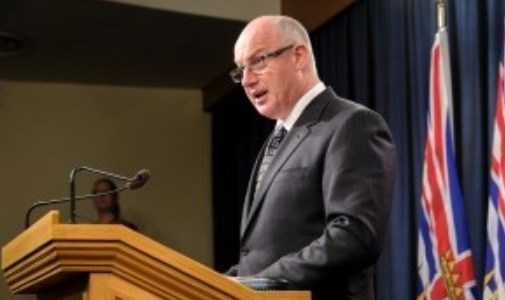Solicitor General Mike Farnworth’s inability to end years of bickering around with a clear provincial decision has made one thing evident: The province should change B.C.’s Police Act, to make sure the Gong Show playing out in Surrey right now doesn’t repeat somewhere else in the future.
The law, , appears to give the solicitor general ample power to lay down the law in a policing dispute.
“The minister must ensure that an adequate and effective level of policing and law enforcement is maintained throughout British Columbia,” reads the act, right up near the top in section two.
That includes, above and beyond a municipality’s right to determine its own police force, the power by the solicitor general to recommend cabinet orders that “enhance, provide or reorganize policing and law enforcement in any or all areas of British Columbia, including, without limitation, in any or all municipalities.”
Seems pretty clear: The provincial government has the final say on policing and can order a municipality on what kind of police force is best for public safety.
And yet, Farnworth has maintained publicly and privately for months now that he’s hamstrung. He’s said the Police Act only gives him the power to issue “non-negotiable” binding directives a city has to follow if it wants to reverse its transition to a new Surrey Police Service and go back to the RCMP, as Surrey council voted to do last week. The minister is left nitpicking at reports, instead of issuing orders.
The position is odd, because previous solicitors general have wielded the same law with much more authority, including forcing the Esquimalt and Victoria police departments to amalgamate in 2003, and later, in 2011, refusing to allow Esquimalt to leave and join the RCMP.
Yet somehow, in 2023, the army of risk-averse government lawyers and bureaucrats advising the solicitor general no longer think the Police Act has the juice to let the province intervene.
Fine.
Then, let's change it.
Priority number one for the fall session of the B.C. legislature should be amendments to the Police Act that clearly spell out the province’s authority to overrule municipalities on policing.
It could read like this: A city can choose its own police force, but it must get clear provincial approval to do so, and if a council tries to reverse course on a provincially-approved plan (leaving two half-implemented messes in its wake) then the province can step in to make a clear, binding decision on which one stays.
It’s stupefying that this is not already the case. Certainly the spirit of the law is there in its wording, even if the ministry lawyers lack the will to argue it in court, and NDP political strategists are too frightened about the electoral consequences for Surrey MLAs to bring down the hammer.
Crystal-clear certainty under the law is necessary because the current system, as described by Farnworth, is one in which municipalities can do pretty much what they want on policing while the provincial government is reduced to a meek bystander, issuing its own toothless reports that consist of “strong recommendations” in crises that call for leadership and decisions.
That can’t stand. It opens the door for an even worse mess to play out somewhere else in the province, once Surrey is done dinging taxpayers $8 million a month for its double-reversed transition.
Policing is a complex issue, full of intricate public safety concerns and a provincial contract with the RCMP. But it’s also not rocket surgery. A provincial government should have the tools it needs to prevent another costly, toxic, divisive, unmitigated mess like the one that’s played out in Surrey over the last four years.
Change the Police Act. Use the new powers to make a final decision in Surrey. Then make it clear to all municipalities: This kind of debacle will never be allowed to happen again.
Rob Shaw has spent more than 15 years covering B.C. politics, now reporting for CHEK 撸奶社区 and writing for Glacier Media. He is the co-author of the national bestselling book A Matter of Confidence, host of the weekly podcast Political Capital, and a regular guest on CBC Radio. [email protected]




